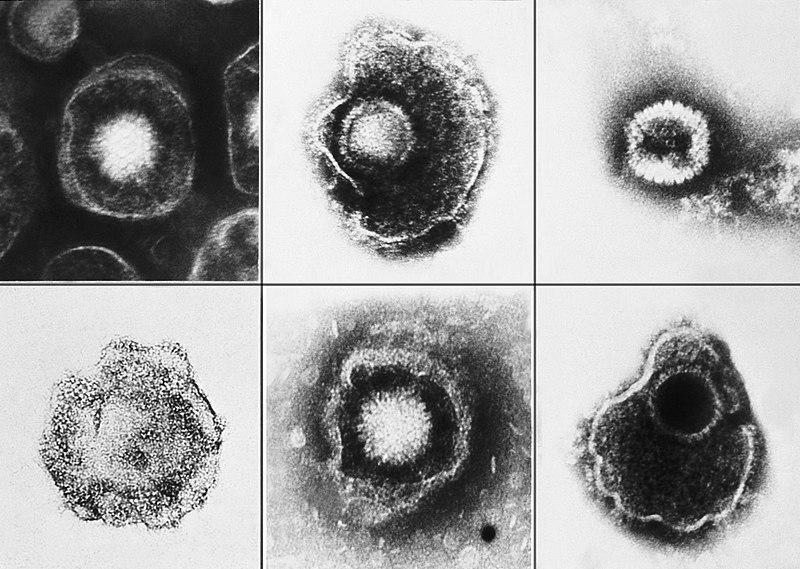herpesviridae

The Herpesviridae are a large family of DNA viruses that cause diseases in animals, including humans. Viruses, the members of this family are also known as herpesviruses. Herpesviridae can cause latent or lytic infections.
Herpesviruses all share a common structure—all herpesviruses are composed of relatively large double-stranded, linear DNA genomes encoding 100-200 genes encased within an icosahedral protein cage called the capsid which is itself wrapped in a protein layer called the tegument containing both viral proteins and viral mRNAs and a lipid bilayer membrane called the envelope. This whole particle is known as a virion.
Human herpesviridae infections
- HHV-1 = HSV-1
- HHV-2 = HSV-2
- HHV-3 = VZV
- HHV-4 = EBV
- HHV-5 = CMV
- HHV-6 = Roseolovirus
- HHV-7
- HHV-8 = KSHV























